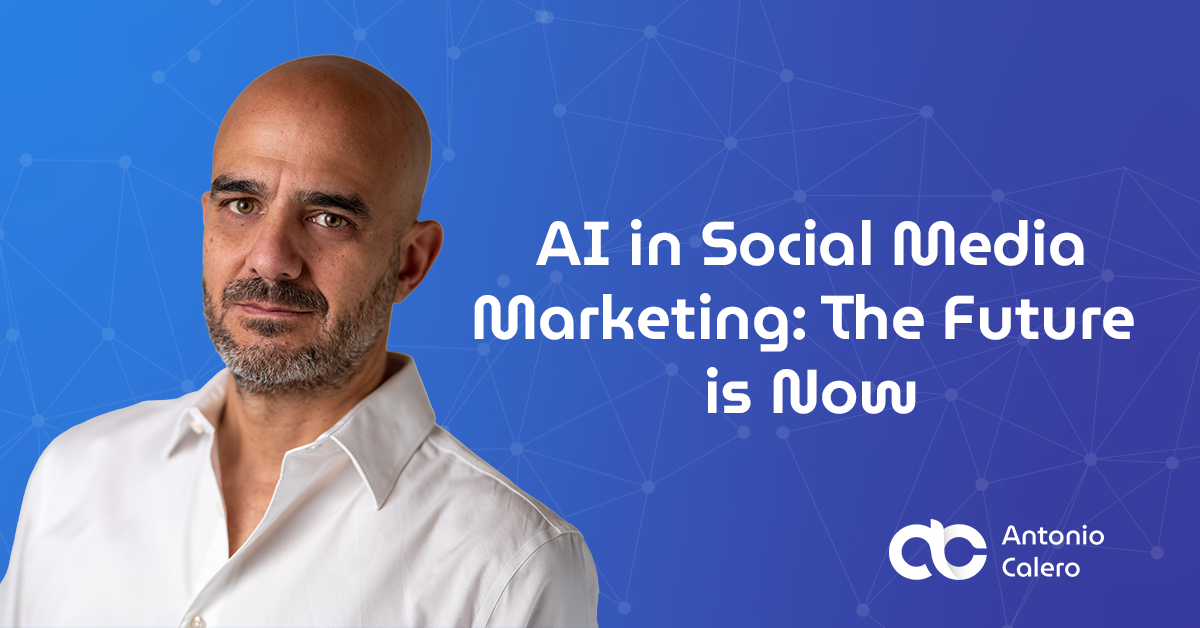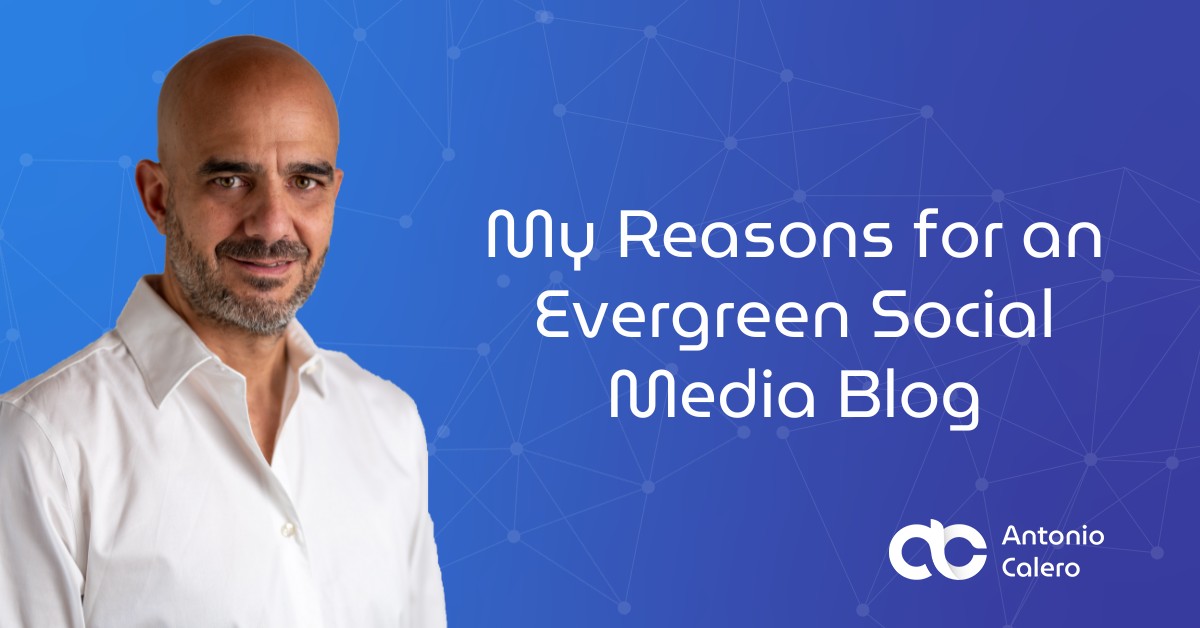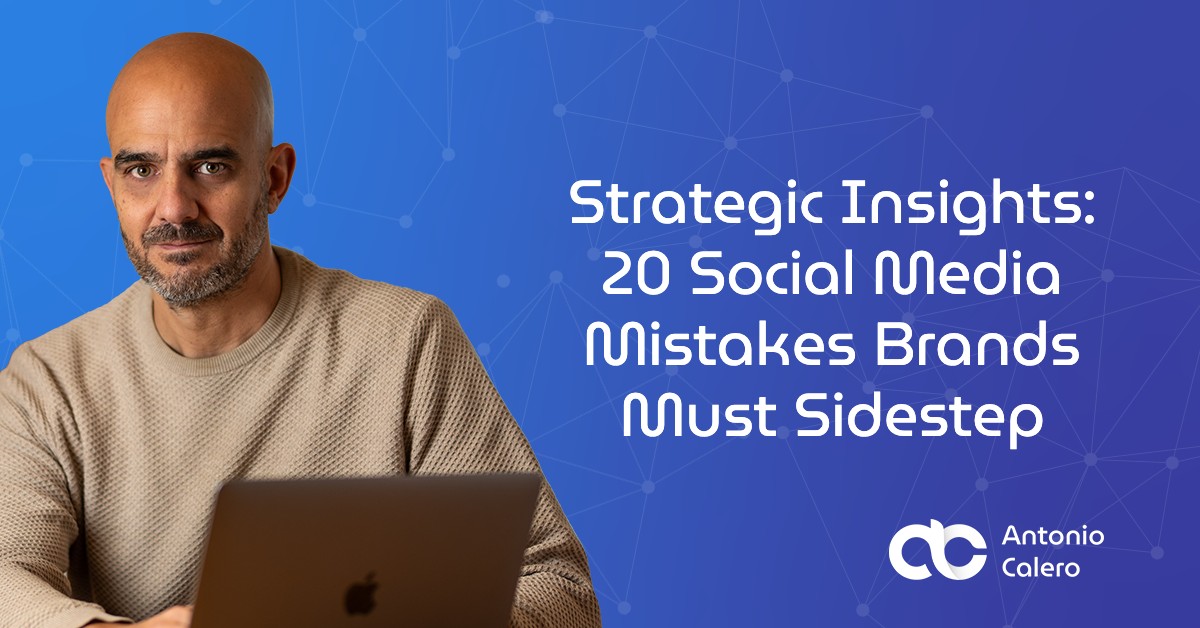AI in Social Media Marketing: The Future is Now
Imagine scrolling through your social media feed when an advertisement pops up. It’s not just any ad—it seems almost eerily tailored for you, hitting all your interests, needs, and even recent conversations.
This isn’t magic; it’s the power of artificial intelligence (AI) at work in the realm of social media marketing.
While Siri, Alexa, and Google Assistant have made AI a familiar presence in our daily lives, its transformative impact on social media marketing often remains underexplored. It’s not just about creating smarter ad algorithms; it’s about a revolutionary change in the way brands connect with consumers.
In today’s digital age, where attention spans are brief and competition is fierce, AI is the game-changer that brands need. But what does this integration of AI in social media mean for businesses and consumers alike? Is it simply about better-targeted ads, or is there a more profound shift in the dynamics of online interaction? Let’s demystify the role of AI in social media marketing, illustrating its vast potential and the transformative effects it can have on business strategies.
The evolution of social media marketing
There was a time when social media was new and uncharted. It began with simple status updates on platforms like MySpace and Facebook. Over time, it evolved into a multimedia experience, and brands saw an opportunity. Initial campaigns were basic: craft a post, select a vibrant image, post, and await the likes.
Today, the landscape is vastly different.
With platforms multiplying and the user base becoming more diverse, the need for more strategic, targeted marketing has never been more apparent. And amidst this evolution, we’ve seen tools and metrics mushrooming. From analytics dashboards to scheduling tools, the world of social media marketing is teeming with aids to make a marketer’s life easier.
But with the data deluge, there’s also a paradox of choice. How do you choose the right metrics? Which platform deserves more attention?
That’s where AI comes in.
Instead of replacing the human touch, AI augments it, providing deeper insights and automating repetitive tasks.
The intersection of AI and social media marketing
The nuances of social media advertising have undergone a seismic shift with the introduction of advanced AI technologies. It’s transcended basic algorithm-driven content delivery and has ventured into realms that are genuinely revolutionizing the user experience and marketer capabilities.
One breakthrough AI innovation is the automation in advertising campaigns. Platforms like Facebook have rolled out systems like Advantage+ targeting. This doesn’t just re-display ads to users who’ve engaged with a product; it employs sophisticated learning to determine the type of products you might be interested in based on your past behaviors, interactions, and even the tone of your online discussions.
Image recognition technology, powered by AI, is playing a dual role. First, it aids platforms in identifying and flagging copyrighted content, ensuring that infringements are minimized. But more fascinatingly, brands are leveraging this to analyze images and videos where their products might appear, even without explicit mentions. It’s a treasure trove of data, revealing insights on how consumers use and perceive their products in real life.
AI’s role in content creation cannot be understated. We’re not just talking about suggested post copies, which, by the way, have transformed from generic templates to context-aware, brand voice-matching suggestions. AI also enhances images, ensuring that the visuals you post are optimized for maximum impact, be it brightness adjustments or even slight cropping to emphasize focal points.
The realm of video content has seen AI’s prowess as well. Automatic captions, for one, ensure that videos are accessible even in sound-off environments—a boon considering many users browse without audio. But the magic doesn’t stop there. AI now aids in auto-generating video content. Input your primary content, and watch AI craft short video snippets, perfect for grabbing audience attention.
While chatbots, which employ sophisticated algorithms to simulate human-like interactions, are not new, their evolution is noteworthy. They’ve progressed from being mere query handlers to virtual shopping assistants, guiding users, suggesting products, and even handling post-purchase feedback.
In the intricate dance of content delivery and audience engagement on social media, AI isn’t just a player; it’s rapidly becoming the choreographer. With each innovation, it brings businesses closer to their audiences, personalizing experiences, and refining marketing strategies in unprecedented ways.
A glimpse into real-world applications
The realm of theory is vast, but the true measure of AI’s impact in social media marketing shines through in its application. Let’s pivot from the conceptual and delve into real-life examples of brands that have seamlessly integrated AI into their social media strategies, setting benchmarks for others to follow.
Coca-Cola
A behemoth in the world of marketing, Coca-Cola never shies away from innovation. Utilizing advanced image recognition software on social media, the brand has redefined audience analysis. It’s not just about tracking product placement; it’s about understanding context.
Is that bottle of Coke being sipped at a sunlit picnic or being clinked in a celebratory toast? By analyzing such scenarios, Coca-Cola doesn’t just gather data, but they craft stories. These insights provide a granular understanding, enabling the brand to develop targeted marketing campaigns that resonate deeply with consumers’ lived experiences.
Sephora
In the beauty industry, where personalization is paramount, Sephora emerges as a pioneer. Eschewing traditional customer support methods, they’ve embraced AI-driven chatbots on Facebook Messenger. But these bots aren’t just digital clerks. They are virtual makeup artists, understanding user preferences, analyzing uploaded selfies, and suggesting products tailored to individual tastes. In a space where choice can be overwhelming, Sephora’s AI offers a beacon of personalization, ensuring that every user feels seen, understood, and catered to, all within the realm of social media.
These brands, in their unique ways, exemplify how AI isn’t just an add-on tool but a transformative force in social media marketing.
Harnessing the power of AI in social media: recommendations
We’ve talked about the broader implications of AI in social media marketing. But as a marketer or brand, what tangible steps can you take today? Here’s a concise roadmap:
- Tone Optimization: Every brand has a voice, but does it resonate with its audience? Tools powered by AI like Agorapulse, can analyze your content and provide recommendations. Want to sound more casual? Or perhaps more authoritative? AI can guide you.
- Beyond Customer Support Chatbots: While chatbots are great for handling customer queries, they can do so much more. Consider them as virtual advisors. For instance, a fitness brand’s chatbot could provide daily workout tips. For a travel agency, travel tips or sightseeing recommendations based on a user’s current location.
- Deep Data Dive: Data is the new oil. But raw data, in itself, isn’t valuable. It’s the insights derived from it that are gold. AI can help you sift through mountains of data, picking out patterns, and offering actionable insights.
- Content Curation: With AI, you can move beyond generic posts. Platforms can analyze user engagement metrics, creating a curated feed that’s more aligned with user preferences.
- Predictive Analysis: One step beyond insights is prediction. By analyzing past behaviors and patterns, AI can predict future trends, giving brands a crucial edge.
- Visual Recognition: It’s not just about numbers and text. AI tools can analyze images, videos, even GIFs. Brands can track their products, logos, even brand colors across social media platforms.
- Schedule Smartly: Timing is everything in social media. AI tools can predict when your target audience is most active, optimizing post timings for maximum engagement.
The challenges: AI in social media Marketing isn’t all rosy
The benefits of AI in social media marketing are numerous, but it’s not without its challenges. Topmost is the privacy concern. As AI algorithms dig deeper into personal data for better personalization, where does one draw the line? GDPR, CCPA, and other data protection regulations are a testament to these growing concerns.
Furthermore, despite the undeniable value of AI in social media, the irreplaceable nature of human judgment remains evident. Algorithms, as advanced as they are, can still falter, lacking the nuance and understanding that only humans possess.
Take, for instance, when running advertising campaigns on social platforms. It’s not uncommon for these networks to provide suggestions or recommendations based on algorithmic patterns. However, blindly accepting these can sometimes lead to missteps. Not every tip or advice thrown your way by the algorithm is gold. It’s vital to juxtapose AI’s suggestions with your own criteria and common sense. Assess if what the network suggests truly aligns with your campaign goals or if your intuition offers a better direction.
Another challenge is the dependency on data. AI thrives on data. But what if the data is biased, inaccurate, or not comprehensive? The insights derived could be skewed. Marketers need to be vigilant about the data they feed into these systems.
Yet, in the face of these challenges, the industry remains committed to innovation. It’s not about man vs. machine but a harmonious collaboration. Mistakes are learning opportunities, not deterrents.
Looking to the Future: What’s Next for AI in Social Media Marketing?
The horizon of AI in social media is ever-expanding, promising transformations that were once the stuff of science fiction. As technological advancements march forward, we’re on the cusp of experiencing hyper-personalized marketing strategies that adapt and evolve in real-time.
- Fake news and deep-fakes have posed significant challenges in the digital age, but AI is gearing up to identify and demote such misleading content in real-time, ensuring the veracity of the content we consume.
- Beyond the walls of our social media profiles, imagine AI bots responding to comments (even beyond your own social media profiles!) creating a web of interactivity that enhances brand reach.
- Think of the potential of automatic video translations – not just with subtitles but with your own voice and face, breaking down language barriers and establishing a truly global audience presence.
- Scheduled content may soon factor in current news and events, ensuring your brand remains relevant and timely in its communications. No more automatic posting fun content when a tragedy has just occurred!
- Envision a world where ads morph based on users’ emotions, creating truly individualized experiences.
Such a future isn’t merely speculative; it’s on the horizon. AI is poised to revolutionize the realm of social media marketing, making it more intuitive, responsive, and deeply connected to the human experience.
Conclusion
In the grand tapestry of social media marketing, AI has etched its mark. For brands and marketers, it’s no longer an option but a necessity. Embracing AI doesn’t mean sidelining humans; it’s about harmonizing the strengths of both.
The AI wave in social media marketing is surging. As a brand or marketer, you can either ride this wave to new heights or watch from the shore. The choice, as always, is yours.
Other Popular Articles




